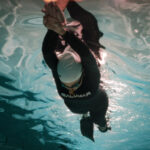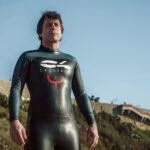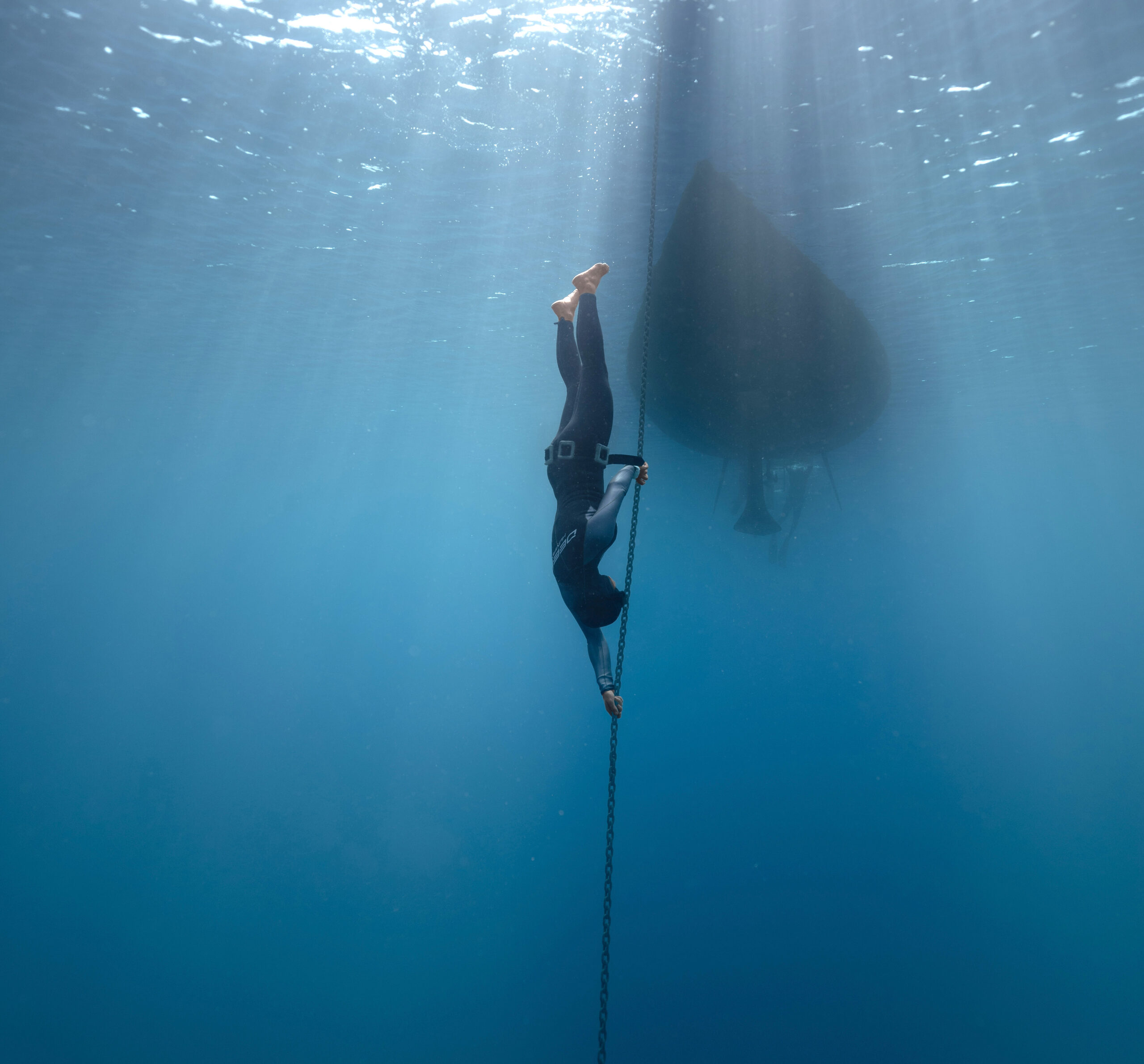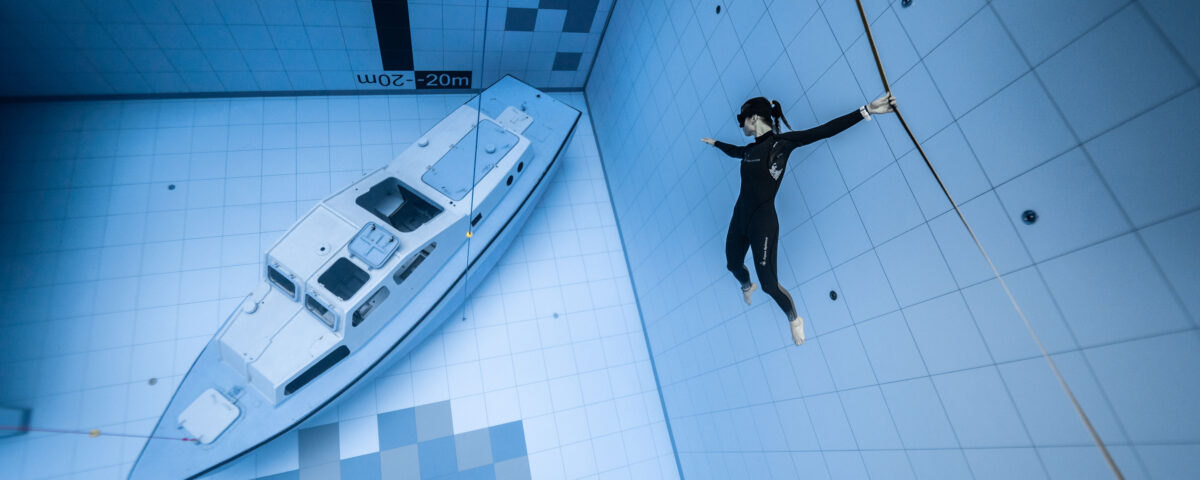Emilia Biala and Deep Spot

Salvimar: Apnea Rise Lady
4 March 2025
C4: the new DYN-UP
13 March 2025Emilia Biala is a trainer of instructors at Deep Spot, the second deepest pool in the world, located in Mszczonów, near Warsaw, Poland. For those unfamiliar with this “sacred destination” for diving and freediving, it boasts a depth of 45 meters, a constant temperature between 32 and 34 degrees, and includes caves, shipwrecks, multi-level areas for diverse training, and qualified instructors
Filippo Carletti
Emilia’s story began long before, when she set 8 national indoor records and one in FIM (free immersion) in outdoor freediving. In 2011, she won the silver medal at the Indoor World Championships in Lignano Sabbiadoro. She later competed several times in ice diving, winning first place in the general category in Poland in 2014.
Emilia, how did you end up at Deep Spot?
“It was never a clear choice to work in a pool, but fortunately, I ended up here. During Covid, I was living in Greece and had heard about a project to create this pool and form a team with the best freedivers and instructors. I immediately thought it was a great opportunity to return home, closer to my family and relatives, in a place only 30 minutes from the airport. I got really excited: a deep pool built by people from my nationality, bringing my sport to the country where I was born. Fantastic! After many years of traveling, teaching, and learning, it felt good to finally think about a base that could become a point of reference. Deep Spot represents a great opportunity to discover new Polish talents, grow the freediving community, and create and maintain a group of athletes that has steadily grown over the years. Today, many people come here, and I can teach them freediving as I have experienced it, sharing what I’ve learned through my travels, competitions, and numerous workshops and courses I’ve attended.”
So you started practicing freediving before Deep Spot. Why? How did it happen?
“I was born in Poland, and where I grew up, there were not many bodies of water to know or practice this sport. Even swimming was something I started late. I discovered freediving after university, as an adult, you could say. I met a man, a ‘homo delphinus’ in the Polish version, in a pool in Warsaw. He was training with a monofin. In such an environment, a monofin doesn’t go unnoticed, so I asked him some questions. The movements and the way he glided through the water communicated a freedom of movement without limits. At the time, I was working for a company and spent my days in an office. I felt lost and depressed. It wasn’t the life I wanted or the one for me. But at that point, I had no idea where to search for my passion. Perhaps that’s why I started this adventure. I came into contact with a small Polish freediving community. From that moment, I started a transformation that fully took shape during my first competitions. My results were excellent, so much so that I accepted an invitation to the World Championships in 2011 in Lignano Sabbiadoro. That was a real turning point: I went from feeling suffocated in an office job to winning a silver medal in a sport I never thought I belonged to. It was also when I began to believe in myself, explore my limits, and understand who I was and what I could achieve. Were the limits I had set for myself real? This awareness taught me how powerful the mind is and how much one can achieve by believing in oneself and harnessing the power of thought. If I had to sum it up, I don’t know where I would be if I hadn’t discovered freediving.”
How did you decide to leave your job to dedicate yourself to freediving?
“I’ve always considered myself an artistic soul, not suited for repetitive and rigid jobs where you can’t express yourself. After the silver medal at the World Championships, which already prompted some important reflections, something significant happened that left a mark, perhaps even today. Due to an error, the train I was on was traveling on the same track as another train coming from the opposite direction. The accident was terrible, with victims and injured people. I came out unscathed, even my monofin survived. This event left me with a crucial message: never take life for granted and make the most of it. Then I took a solo trip for several months in Asia. In 2015, I left my job and took a course to become a freediving instructor with an inspiring and free-spirited trainer: Aharon Solomons.”
How is your experience with freediving today and how has it changed over time?
“Today, I have my own freediving company, ‘B Like Water.’ The idea of a stable job came during Covid. That period made many of us realize that nothing in life is certain! During that time, Deep Spot continued to operate because it was classified as a multi-zone diving simulator and didn’t fall under the same restrictions. When I started practicing freediving, there was no proper place to train, just regular pools where going with a monofin wasn’t exactly easy! Today, there are many options, including equipment, teaching methods, training programs, and destinations. When I became an instructor, I was the fourth in Poland. Today, there are many more. I had to travel to learn; today, our coaching programs are all-inclusive. People who come here already know our sport, at least in a general way. It wasn’t like that before. A fundamental change is the age at which people start this sport. I started at 30. Today, even younger children can approach it, and it’s much more accessible. I think what is changing and will continue to evolve is the perception of freediving as an extreme and dangerous sport. Training in a controlled environment like a deep pool—with a visible bottom, defined and safe spaces, and constant supervision—makes this discipline much more accessible.”
What other areas are being developed at Deep Spot and what goals do you have planned?
“At Deep Spot, we focus on several areas beyond freediving and diving, particularly relaxation and aquatic therapy. The water connects you with your emotions and can significantly relieve stress and anxiety. Another strong point is the highly qualified and diverse instructors. This allows us to promote different activities while maintaining a high level of service quality. With ‘B Like Water,’ I want to convey that anyone can become and take the form they desire. Unfortunately, today we are losing our connection with nature. Body and mind are walking separate paths, but it shouldn’t be that way. These are the illnesses of our time. One of my main goals is to train new instructors and set up freediving clubs for children, continuing the existing yoga and breathing sessions, as well as sharing the universal tools (like stress management) that freediving offers for different activities, such as the corporate world. I also love to travel, and as every year, I plan to train and teach in Dahab, with some freediving and sailing trips in Greece in June and September.”



